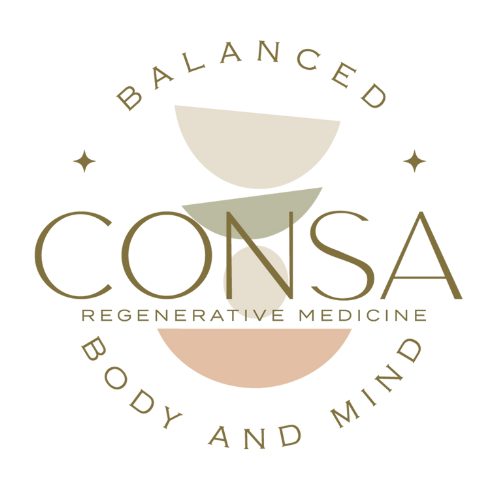Lifestyle Changes to Maximize the Effectiveness of Weight-Loss Drugs
Prescription weight-loss drugs can significantly aid individuals in their journey to shed excess pounds, but they are most effective when combined with meaningful lifestyle changes. Incorporating healthier habits into daily routines can enhance the benefits of these medications, leading to more sustainable weight loss and improved overall health. This comprehensive guide explores various lifestyle changes that can maximize the effectiveness of weight-loss drugs, including dietary modifications, physical activity, behavioral strategies, sleep hygiene, and stress management.
The Role of Lifestyle Changes in Medical Weight Loss
While weight-loss drugs can help kickstart the process, long-term success depends on a holistic approach that includes lifestyle modifications. These changes not only complement the action of the medications but also address the root causes of weight gain, promoting lasting results.
Dietary Modifications
A well-balanced, nutritious diet is the cornerstone of any successful weight loss plan. When combined with weight-loss drugs, dietary changes can amplify the effects of the medication, leading to more significant and sustainable weight loss.
Focus on Nutrient-Dense Foods
Eating nutrient-dense foods ensures that your body receives the essential vitamins, minerals, and macronutrients it needs to function optimally. Incorporate a variety of fruits, vegetables, lean proteins, whole grains, and healthy fats into your meals. These foods provide the necessary nutrients while being lower in calories, helping you feel full and satisfied without overeating.
Control Portion Sizes
Portion control is crucial for managing calorie intake. Even healthy foods can contribute to weight gain if consumed in large quantities. Use smaller plates and bowls to help regulate portions, and pay attention to serving sizes on food labels. Mindful eating, which involves savoring each bite and recognizing hunger and fullness cues, can also aid in portion control.
Reduce Processed Foods and Sugars
Processed foods and sugary beverages are high in calories and low in nutritional value. They can also trigger cravings and overeating. Limit the intake of sugary drinks, snacks, and fast foods, and opt for whole, unprocessed foods whenever possible. Reading ingredient labels can help you identify hidden sugars and unhealthy additives.
Increase Fiber Intake
Fiber-rich foods, such as fruits, vegetables, whole grains, and legumes, promote satiety and help regulate blood sugar levels. Increasing your fiber intake can aid digestion, reduce hunger, and prevent overeating. Aim for at least 25-30 grams of fiber per day to support weight loss efforts.
Physical Activity
Regular physical activity is essential for burning calories, building muscle, and boosting metabolism. Combining weight-loss drugs with an active lifestyle can enhance the effectiveness of the medication and improve overall health.
Aerobic Exercise
Aerobic exercises, such as walking, running, cycling, and swimming, increase heart rate and burn calories. Aim for at least 150 minutes of moderate-intensity aerobic exercise per week or 75 minutes of vigorous-intensity exercise. This can be broken down into 30-minute sessions five times a week.
Strength Training
Strength training exercises, such as weightlifting, resistance band exercises, and bodyweight exercises, build muscle mass and increase metabolic rate. Muscle tissue burns more calories at rest than fat tissue, making it easier to maintain weight loss. Aim for at least two strength training sessions per week, targeting all major muscle groups.
Incorporate Physical Activity into Daily Routine
Finding opportunities to move throughout the day can add up to significant calorie expenditure. Take the stairs instead of the elevator, walk or bike to work, and engage in active hobbies like gardening or dancing. Even small bursts of activity can contribute to your overall fitness and weight loss goals.
Behavioral Strategies
Addressing behavioral aspects of eating and activity can help create lasting habits that support weight loss and maintenance.
Set Realistic Goals
Setting achievable and realistic goals is crucial for staying motivated and on track. Break down long-term weight loss goals into smaller, manageable milestones. Celebrate progress along the way to maintain motivation and build confidence.
Keep a Food and Activity Journal
Tracking your food intake and physical activity can provide valuable insights into your habits and help identify areas for improvement. Use a journal or mobile app to log meals, snacks, and workouts. Reviewing your entries regularly can help you stay accountable and make informed adjustments to your plan.
Practice Mindful Eating
Mindful eating involves paying full attention to the eating experience, from the taste and texture of food to hunger and fullness cues. Slow down, savor each bite, and avoid distractions like watching TV or using your phone while eating. This practice can help prevent overeating and improve your relationship with food.
Develop a Support System
Having a support system can make a significant difference in your weight loss journey. Share your goals with friends, family, or join a weight loss group. Having someone to share experiences, provide encouragement, and hold you accountable can boost your motivation and success.
Sleep Hygiene
Adequate sleep is often overlooked but plays a vital role in weight management. Poor sleep can disrupt hormones that regulate hunger and appetite, leading to increased cravings and overeating.
Aim for 7-9 Hours of Sleep
Most adults need 7-9 hours of quality sleep per night. Establish a regular sleep schedule by going to bed and waking up at the same time each day, even on weekends. Create a relaxing bedtime routine to signal your body that it’s time to wind down.
Create a Sleep-Friendly Environment
Your sleep environment can significantly impact the quality of your rest. Keep your bedroom cool, dark, and quiet. Invest in a comfortable mattress and pillows, and minimize exposure to screens and blue light before bedtime, as these can interfere with your natural sleep-wake cycle.
Manage Stress and Relaxation Techniques
Stress can negatively affect sleep and overall health. Incorporating relaxation techniques into your daily routine can help manage stress levels and improve sleep quality. Practices such as deep breathing, meditation, progressive muscle relaxation, and gentle yoga can promote relaxation and reduce stress.
Stress Management
Chronic stress can lead to emotional eating and weight gain. Developing effective stress management techniques is essential for maintaining a healthy weight and overall well-being.
Identify Stress Triggers
Understanding what causes stress is the first step in managing it. Keep a journal to identify patterns and triggers that contribute to stress. Once identified, you can develop strategies to address or avoid these triggers.
Practice Mindfulness and Meditation
Mindfulness and meditation can help you stay present and reduce stress. These practices involve focusing on the present moment and accepting it without judgment. Regular mindfulness practice can improve your ability to cope with stress and reduce emotional eating.
Engage in Physical Activity
Exercise is a powerful stress reliever. Physical activity increases the production of endorphins, the body’s natural mood elevators. Incorporate activities you enjoy into your routine, whether it’s a vigorous workout, a leisurely walk, or a dance class.
Seek Professional Support
If stress becomes overwhelming, consider seeking support from a mental health professional. Therapy or counseling can provide valuable tools and strategies for managing stress and improving mental health.
Integrating Medical Weight-Loss Drugs with Lifestyle Changes
To maximize the effectiveness of weight-loss drugs, it’s essential to integrate these lifestyle changes seamlessly into your daily routine. Here are some tips for creating a holistic weight loss plan that combines medication with healthy habits.
Work with a Healthcare Provider
Collaborate with a healthcare provider to develop a personalized weight loss plan. Your provider can prescribe the appropriate weight-loss medication, monitor your progress, and make adjustments as needed. Regular check-ins can help track your success and address any challenges that arise.
Create a Structured Meal Plan
Plan your meals and snacks in advance to ensure you’re consuming a balanced diet. Include a variety of nutrient-dense foods, control portion sizes, and limit processed foods and sugars. Preparing meals at home can give you greater control over ingredients and portion sizes.
Schedule Regular Exercise
Set aside specific times for physical activity each week and treat these appointments as non-negotiable. Consistency is key to building an active lifestyle. Find activities you enjoy to make exercise feel less like a chore and more like a rewarding part of your routine.
Build Healthy Habits Gradually
Making significant lifestyle changes all at once can be overwhelming. Instead, focus on building one healthy habit at a time. For example, start by incorporating more vegetables into your diet, then gradually increase your physical activity levels. Small, incremental changes can lead to lasting habits.
Monitor Your Progress
Regularly track your food intake, physical activity, and weight loss progress. Use this information to identify what’s working and where adjustments may be needed. Celebrate your successes, no matter how small, and stay motivated by recognizing the positive changes you’re making.
Stay Flexible and Adaptable
Weight loss journeys can be unpredictable, and setbacks are a normal part of the process. Stay flexible and adaptable, and don’t be discouraged by temporary plateaus or challenges. Adjust your plan as needed and continue to focus on your long-term goals.
Conclusion
Prescription weight-loss drugs can be a powerful tool in achieving significant weight loss, but their effectiveness is maximized when combined with meaningful lifestyle changes. By adopting healthier dietary habits, engaging in regular physical activity, addressing behavioral aspects of eating, prioritizing sleep, and managing stress, you can enhance the benefits of weight-loss medications and achieve lasting results.
If you’re ready to take the next step in your weight loss journey and explore how lifestyle changes and prescription weight-loss drugs can work together for you, contact Consa Regenerative Medicine in Beaver Dam, Wisconsin. Our expert team is here to help you develop a personalized, comprehensive weight loss plan tailored to your unique needs and goals. Your path to a healthier, happier life starts with Consa Regenerative Medicine.
This content is not intended to diagnose, treat, cure, or prevent any disease. This information does not constitute medical advice, and it should not be relied upon as such. Consult with your doctor before modifying your regular medical regime. Results may vary / may not be typical.





